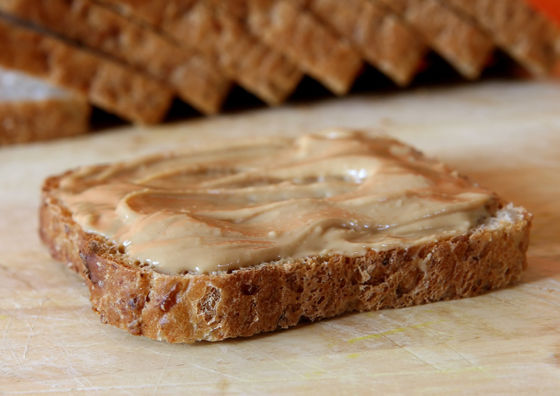Research results that peanut allergy decreased by 77% when giving peanut products to babies

Peanut allergy has increased rapidly in recent years. For example, it is said that one in 50 people in the UK develops a peanut allergy. Newly published research finds that weaning foods between 4 and 6 months of age may be an important opportunity to reduce the risk of allergies.
Defining the window of opportunity and target populations to prevent peanut allergy - Journal of Allergy and Clinical Immunology
Peanut allergies could dramatically fall if babies weaned early on peanut products - University Hospital Southampton
https://www.uhs.nhs.uk/whats-new/news/peanut-allergies-could-dramatically-fall-if-babies-weaned-early-on-peanut-products
Peanut allergies reduced by 77% by introducing peanuts at 4-6 months old - The Jerusalem Post
https://www.jpost.com/health-and-wellness/article-734801
It is said that ``If you give small amounts of foods that you are worried about allergies to early on, you are less likely to develop an allergy.'' Introduce peanuts into the infant diet at an age-appropriate time period of 6 months, around 6 months for mild to moderate eczema, and for other infants according to family preferences and cultural practices,” the 2017 guidelines stated. I am proposing. The European Society for Allergy and Clinical Immunology has also proposed in its 2021 guidelines that ``in populations with high prevalence of peanut allergy, peanuts should be given to infants between 4 and 6 months of age''. The guidelines are based on eczema because babies with severe eczema are more likely to develop food allergies.

In this study, a research team led by Graham Roberts of the University of Southampton, England, investigated the effects of early intake of foods that cause allergies on the general population, and how to start taking them. To find out when the best time is, we looked at data from past tests performed on infants with low to high allergy risk.
Specifically, the study was 'Learning Early About Peanut Allergy (LEAP)' for infants aged 4 to 11 months with severe eczema and egg allergy and its preliminary screening test. , 'Peanut Allergy Sensitization (PAS)', an allergy test at 60 months of age for infants who did not participate in LEAP because they were too low risk or were already allergic; There are four 'Inquiring About Tolerance (EAT)' that tested six types of allergen foods (peanuts, boiled eggs, milk, sesame, white fish, wheat) with 3-month-old infants.
The research team analyzed these data and found that introducing peanut products at 4 to 6 months of age reduced allergies by 77%, making this the optimal time to introduce peanut products. . In particular, it is recommended to give babies with eczema as early as 4 months after birth. On the other hand, when peanut products were introduced at 12 months of age, only 33% were effective in preventing allergies.
However, giving babies whole peanuts can accidentally choke them, so researchers say they should be given smooth peanut butter or peanut products made for babies.

According to Gideon Luck of King's College London, co-author of the paper, there are very few people with peanut allergies in Israel, where it is common to eat peanut products from an early age. “The benefits of introducing peanut products into the baby's diet diminished with increasing age,” Luck said. It reflects my experience in Israel, which has a unique cultural background.'
Previous research focused on infants at high risk of allergies, but this study also found that taking allergy countermeasures for all infants could maximize the effect. This is because most allergies develop in babies who have no risk factors. Treating only babies with severe eczema reduced the incidence of allergies by less than 5%.
Regarding the results, Roberts said, ``Peanuts were traditionally advised to be avoided, so parents avoided incorporating them into their diets early.This latest evidence is a simple, low-cost, and safe intervention. We show that applying it to the entire population can be an effective preventive public health strategy that will greatly benefit future generations.'
Related Posts:







